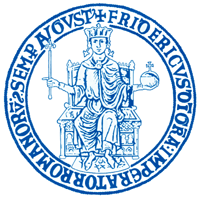Location
The University of Naples Federico II (Italian: Università degli Studi di Napoli Federico II) is a university located in Naples, Italy. Founded in 1224 it is the oldest public non-religious university in the world, and is now organized in 13 faculties. It was Europe's first university dedicated to training secular administrative staff, and one of the oldest academic institutions in continuous operation. Federico II is the third University in Italy by number of students enrolled, despite its huge dimensions it still represents one of the best Universities in Italy being an excellence in particular for research; in 2015 it was ranked among the first 100 universities in the world by citations per paper.] As of 2016 it is the only generalist Italian university in the Times higher education reputation, which considers the best 200 best universities in the world. The university is named after its founder Frederick II. From October 2016 the University hosts the first ever Apple IOS Developer Academy.
Source: Wikipedia (consulted d.d. February 21st 2018)
Members:
Resources
Displaying 6 - 10 of 56Surface thermal analysis of North Brabant cities and neighbourhoods during heat waves
The urban heat island effect is often associated with large metropolises. However, in the Netherlands even small cities will be affected by the phenomenon in the future (Hove et al., 2011), due to the dispersed or mosaic urbanisation patterns in particularly the southern part of the country: the province of North Brabant.
Aspects of Land Take in the Metropolitan Area of Naples
Land take is a phenomenon of great concern nowadays because of the large number of its negative impacts regarding biological, economic and social balance. In Italy, the development of urban and other artificial land has been irreversibly transforming a non-renewable resource such as soil, regardless the almost constant population rate, with different speed depending of the region considered.
A Markov Chain Model of Land Use Change
The set of models available to predict land use change in urban regions has become increasingly complex in recent years. Despite their complexity, the predictive power of these models remains relatively weak. This paper presents an example of an alternative modeling framework based on the concept of a Markov chain. The model assumes that land use at any given time, which is viewed as a discrete state, can be considered a function of only its previous state.
A Land-use Approach for Capturing Future Trip Generating Poles
Changes in the usage of a particular urban or regional area have immediate effects on transportation, such as the development of a new multimodal terminal within a city, or the creation of a business park in its outskirts. Thus far, this correlation has been under-researched at a national level in Greece. As a result, its effects on trip generation and passenger flows has been underestimated at the planning level, leading to the implementation of projects that are neither viable nor sustainable.
Council Tax Policies and Territorial Governance: Analysis and Outlook of a Difficult Relationship
In recent years, the dependency of local public finance from various forms of taxation related to urban development and real estate has become increasingly evident in Italy. Nevertheless, to date no organic relationship seems to have been established between fiscal policies, on the one hand, and urban planning, on the other.


